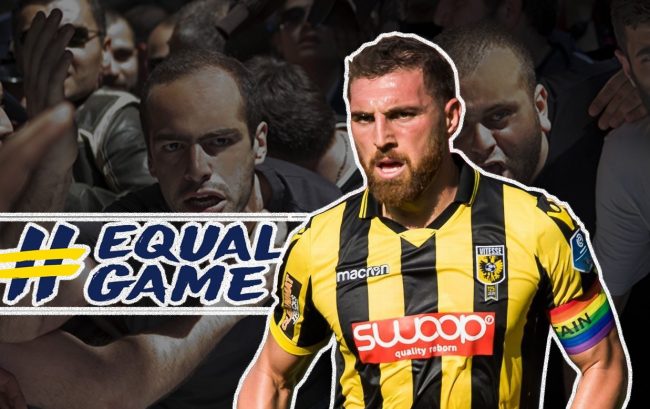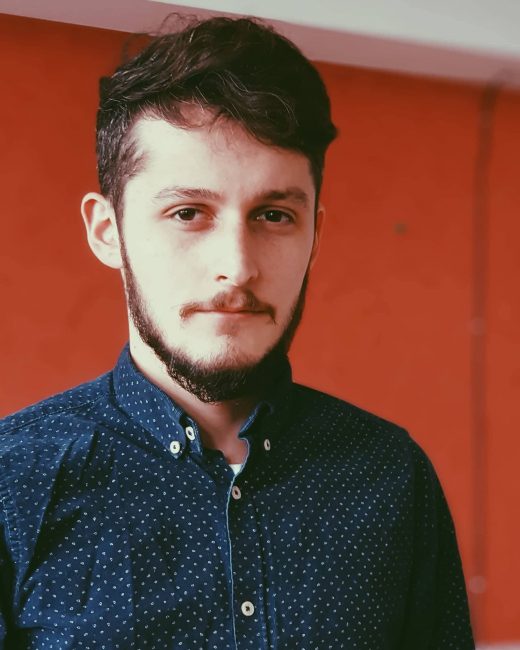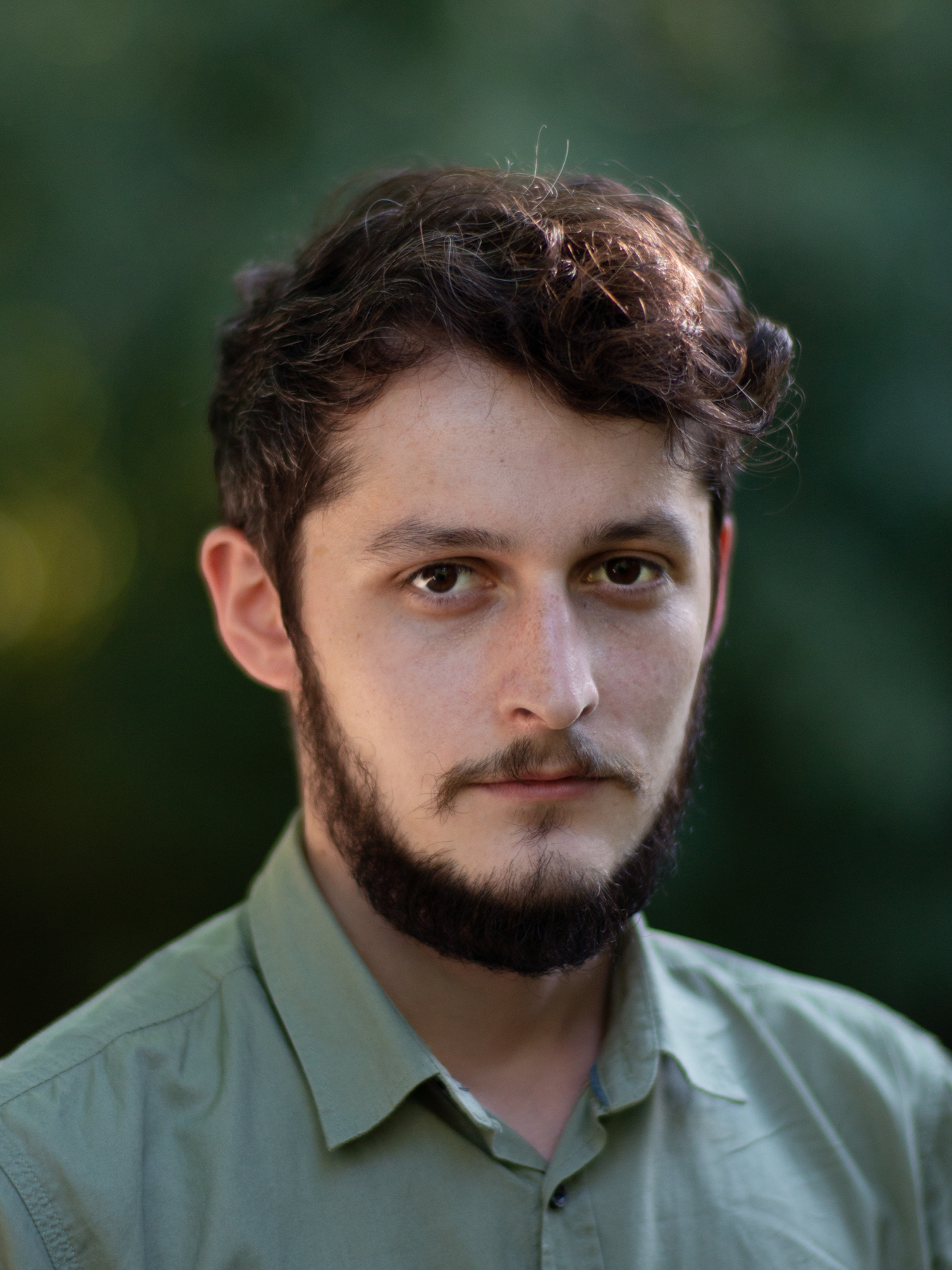

In the face of abuse and threats over wearing a rainbow armband at a match, Georgia’s football captain, Guram Kashia, has received an unprecedented outpouring of support. Regardless of how much this support means for the queer community, we need to ask whether it is really for them, given that Kashia’s most prominent supporters have avoided mentioning queer people entirely.
Guram Kashia’s rainbow armband has hit Georgia like a thunderstorm, triggering a heated debate over queer rights like we haven’t seen it before.
[Read in OC Media: Georgians divided over football captain’s #EqualGame award]
The debate stands out in that it involves such a diverse array of groups: far-right movements, the Church, football players and fans, rights groups, officials, and the general public. Kashia did not back down from his stand on equality and he’s been gaining supporters ever since.
Nobody in Georgia expected that ‘solidarity’ for the queer community would start from sports. Especially from a sport as masculine as football. Kashia stole our hearts with his bold move and was warmly featured on queer platforms as an ally.
After the initial turmoil, the armband caused, many feared Kashia would back down. He didn’t — and it has become a huge win for queer people and even looked like a starting point for a campaign supporting queer people. However — it is not.
There is one question we need to answer to see why. Why do neither Kashia nor his supporters actually mention queer people if this is who they supposedly support?
Afraid to say the word
Kashia’s initial comments showed that he had little knowledge or interest in queer rights and that his actions were simply a part of a campaign he had obviously become a part of involuntarily. His first statement — that wearing the armband was not his initiative — sounded like an excuse, knowing that his likely genuine but definitely unpopular move could lead to a wider backlash in his homeland.
It’s not easy to swim against the current when a vast majority in your home country are homophobic, but the ‘damage’ was already done, and he decided to stick with it. As he said, he regretted nothing.
He’s not backed down since and he has even grown bolder in his statements, which we must respect. Yet, he hasn’t so far been bold enough to mention key words such as ‘queer’ or ‘LGBT’. He tends to express his support for ‘equality’ in general terms, including queer people, and he’s made a point that he doesn’t approve of aggression against any group. He also prefers to avoid mentioning the very group of people who his support for has made him a target.
Sure, the rainbow armband could represent equality in general, but first and foremost, we all know it stands for queer rights and that the backlash it has triggered comes from homophobia. This is not about support for some abstract concept of ‘equality’. It is important for him to specify why queer people need support if he stands by his words. Even more so, after he was granted the #EqualGame award from UEFA.
Despite this, Kashia has still done a huge favour to Georgia’s queer community by raising the issue at all. Despite the thousands of insults, attacks, rejections, or even killings of queer people, never in the history of Georgia have queer rights been so widely discussed.
Partially, this may be because Kashia’s main critics are from the far-right, who are also an unpopular group in Georgia. But most importantly, more and more public figures are coming out in support of Kashia, and this means a lot for the queer community as well.
Is everybody standing up for queer rights all of a sudden?
It’s definitely exciting to see so many people engaged online in the campaign supporting Kashia, but queer people should be realistic about the extent of this support.
Even though many prominent supporters, including the Georgian Football Federation, have stated they support Kashia and denounce discrimination, on a larger scale we can see that it’s Kashia that is being shielded from the mob of homophobes. These same people have been terrorising the queer community all along; nobody came to help them.
This is heterosexual men protecting another heterosexual man from the kind of violence queer people are exposed to daily and hardly manage to rally any support. Unfortunately, the queer community has received so little empathy over the years that even this slight and mostly indirect support feels like a lot.
There is another aspect of ‘supporting Kashia’ that distances us from the real issue: stressing Kashia’s right to freedom of expression.
A poll by NDI in January found that 76% of respondents who heard about Kashia didn’t support his decision but believed ‘he was entitled to freedom of expression’. There are several officials who have pointed out this particular right, including the President, the Mayor of Tbilisi, and the Head of Parliament’s Human Rights Committee. By reiterating this obvious truth, officials are distracting the public from the real problem — homophobia.
We know from experience that in Georgia that neither queer people nor their allies are safe from violence. And if we want this to change, we should be precise in the words we choose when standing up to this aggression. We shouldn’t support Kashia because he’s under attack, but because we believe in what he stands for — equality of all people regardless of their sexual orientation or gender identity.
The campaign still has a great potential to influence public opinion into supporting queer rights. If Kashia’s supporters do stand for equality, they shouldn’t shy away from openly supporting queer people and bringing up Kashia as an example to follow.
Kashia doesn’t need your support. He might feel under pressure from all the aggression he’s been exposed to lately, but it’s something he can easily escape. Queer people do. Thousands of queer people in Georgia are subjected to even more serious psychological and physical abuse — and they have nowhere to go.
http://www.oc-media.org/editorial-georgias-government-must-stop-legitimising-homophobic-violence/




 8 September 2018
8 September 2018



